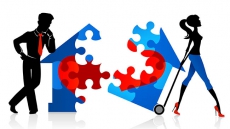The stigma of mental illness in our society
Mental illness is something that affects all Canadians in one way or another – whether it is one’s colleague, family member, or spouse – fighting against mental health stigma is everyone’s responsibility.
A major barrier for those suffering from mental health problems is the stigma surrounding such issues. Stereotypical and taboo-like thinking is further emphasized in certain cultural groups. Amongst the diaspora of East-Indians in Canada, there is a definite existence of such closed-minded and ill-informed beliefs.
When discussing the prevalence of stereotypes and prejudice against Indo-Canadian youth suffering from mental health disorders, local school counselor Natasha Bains expressed her concern for some of her students’ well-being. “Some parents wish to keep their child’s diagnoses private and don’t even want the school to know – it makes it a little difficult to create a positive life trajectory for that student if we can’t even give them the help they require.”
Bains further explained that, “it seems there is a tendency for individuals to stifle or ‘keep quiet’ the existence of such issues amongst family members or loved ones.” It is considered shameful and blame is often placed on either the individuals’ parents or the individual itself.
Another problematic tendency is that there is no differentiation between the person facing such hardships and their disorder – they are defined by their disorder. Labelling and stereotyping is a huge problem in Indian culture. Oftentimes, once an individual has been grouped into a certain classification – their life course changes and as a result further issues arise.

Amongst the Indo-Canadian community it seems to be common for individuals to place precedence over physical health issues rather than mental health issues. Oddly enough, physical complaints and illnesses are often communicated and compared as if they are something to boast about. Individuals have no problem discussing the very personal nature of their physical woes – but rarely acknowledge the existence of any mental health issues.
Many cultures (including Indian society) are plagued by occurrences of judgment, ridicule, and labelling whenever a shortcoming in one’s mental well-being is discovered. The individuals, who are suffering, become treated as an outsider which only further ostracizes them. This adds to the problem and a cycle of isolation and increased symptoms develops.
Each of these factors contributes to the delay of individuals with mental health issues receiving the help they need. It is not uncommon for Indian families to turn to religious or superstitious practices rather than seek medical aid. The reason for this being is that they are simply ill-informed. They attribute complaints of crippling sadness or hallucinations to some sort of spiritual entity which they believe could be cured with devoted prayer or consultation from a superstition belief expert.

Dr. Deepak Dhaliwal, a medical practitioner in the United States of America, agreed with this notion and stated that, “those individuals who do acknowledge the existence of a mental health issue – and try their best to deal accordingly may receive a lot of flack from their community. A lot of people in the Indian community do not understand such issues have biological roots. It is not environmental factors which cause the illness.”
He points out that there is hesitation to accept the mental problem. “Individuals will place blame on everything under the sun except for the fact that these problems are in their genetic make-up. Perhaps it’s an even harder truth to face, as problems determined to be a result of one’s biology is reflective of a flaw in one’s lineage, which of course, is another source of ‘shame’ in Indian culture. They may place blame on such things such as the individual’s diet, poor parenting practices, ‘evil eye’ or even dreaded sins which occurred in a past life coming back with a vengeance in the form of mental disturbances.”
Based on the evidence and prevalence of such a dangerous psyche within our community – it is clear what must be done to alleviate this issue. Once we are able to break through the misconceptions regarding mental illness, individuals will be more inclined to seek out the help they need. The only thing worse than suffering with an illness is suffering alone. We must speak out about such issues in our community so that the stigma around mental illness can be shattered.
(The article is an opinion piece by the writer.)



